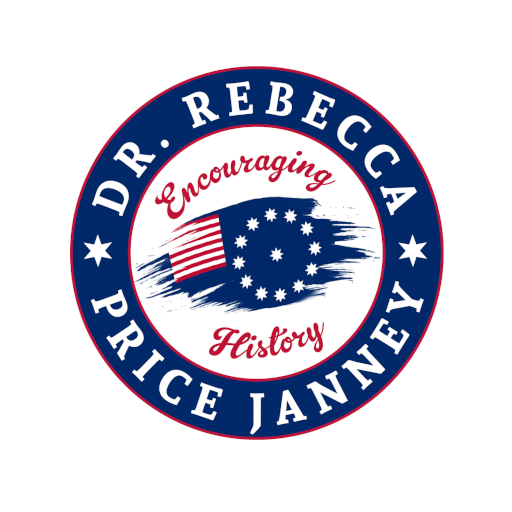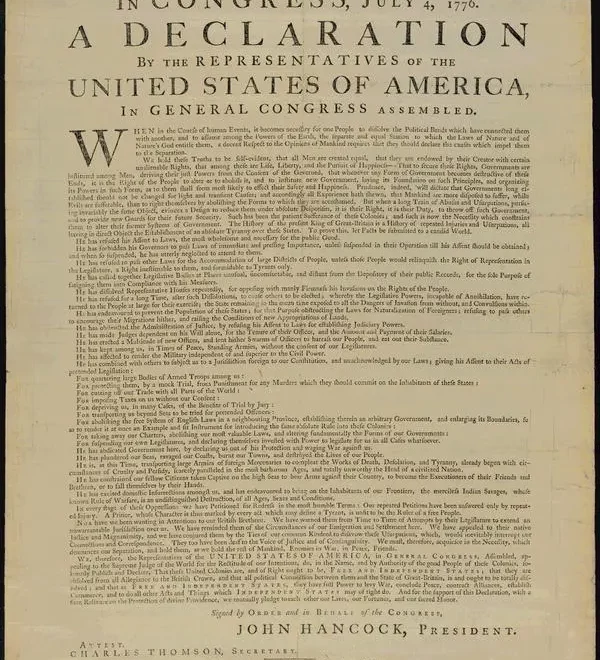
“Yesterday the greatest question was decided which ever was debated in America, and a greater, perhaps, never was nor will be decided among men. A Resolution was passed without one dissenting
Colony ‘that these United Colonies are, and of right ought to be, free, and independent states. . .’ You will see, in a few days, a Declaration setting forth the causes which have impelled us to this mighty
revolution, and the reasons which will justify it in the sight of God and man.”
The Continental Congress approved the final Declaration of Independence on July 4th, then sent a handwritten copy to printer John Dunlap, who worked through the night to make 200 broadsides to
be read and reprinted in newspapers throughout the colonies. The first public reading came in Philadelphia on July 8th when John Dixon proclaimed the news at the yard around Independence Hall,
ending in the ringing of the city’s bells. On that day, public readings also took place in Trenton, NJ and in Easton, PA. On July 9th, a German translation was printed in Philadelphia. On that day, a copy
of the Declaration was delivered to General George Washington at his New York City headquarters, and that night he read it on the Commons in Lower Manhattan to several thousand of his troops.
One of the most prolific correspondents of that era, Abigail Adams shared with her husband how the people of Boston had received the news:
“Boston, 21 July 1776
“The troops appeared under arms and all the inhabitants assembled there…when Colonel Crafts read from the balcony of the State House the proclamation. Great attention was given to every word. As
soon as he ended the cry from the balcony was, ‘God save our American States,’ and then three cheers which rent the air. The bells rang, the privateers fired, the forts and batteries, the cannon were
discharged, the platoons followed, and every face appeared joyful…After dinner, the King’s Arms were taken down from the State House, and every vestige of him from every place in which it appeared,
and burnt in King Street. Thus ends the royal authority in this State. And all the people shall say Amen.”
For a fictional account of the Easton reading, please get a copy of my novel, Easton at the Pass.


Leave a Reply